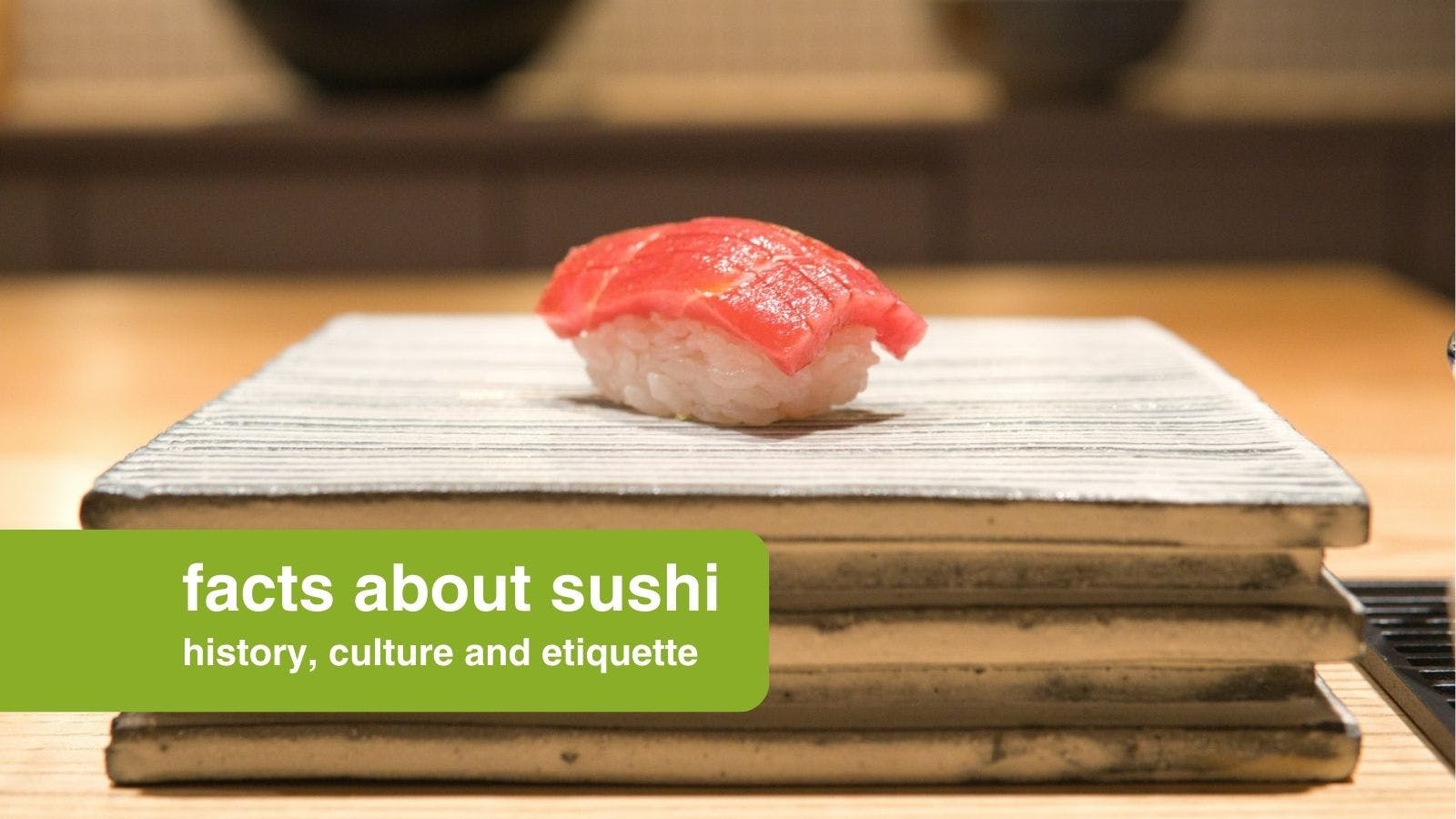your cart
Your cart is empty.
13 Facts About Sushi
Discover the history, culture and traditions that make sushi one of Japan and Asia’s most iconic foods. From its origins to modern sushi etiquette and popular ingredients.

Wonderfully delicious and beautifully artistic, sushi is synonymous with Japanese cuisine. It comes in many shapes and forms, from quick and cheap dinners to elaborate dining experiences. Sushi has become loved worldwide, and you can replicate your favourite sushi dishes at home using ingredients from our Japanese food online store.
Whether you are taking your first steps into the world of sushi or have been a fan of the food for a long time, we have put together some fun trivia to increase your knowledge and appreciation for the iconic Japanese dish.
1. There are Many Types of Sushi
While we might think of sushi as seaweed rolls or rice topped with fish, there are actually many more varieties. For example, temaki sushi is rolled into a seaweed cone, inari sushi is served in a fried tofu pouch, and chirashi sushi simply serves all the ingredients in a bowl!
2. Original Sushi was Served Without Rice
Sushi was originally just a technique to preserve seafood used across Asia. Fish would be covered in rice, salt and vinegar until it fermented, after which the rice would be thrown out. A modern version of this is now served as narezushi.
3. Sushi Was a Japanese Fast Food
Sushi as we know it today was originally a fast food enjoyed by merchants. Hanaya Yohei is credited with eliminating the fermentation process and instead mixing rice with vinegar so it could be served alongside fresh fish more quickly.

4. Sashimi is Not Sushi
Sushi and sashimi are often confused. Sushi is always served with rice, whereas sashimi is thin slices of raw meat often served on its own.
5. A Sushi Shop's Curtain Tells All
In the early days, the sushi shop’s curtain (noren) would indicate if the food was good. As customers left, they’d wipe their hands on the noren and the dirtier it was, the more customers it got!
6. Sushi is Eaten in One
Pieces of sushi should always be eaten in one bite. In Japan, it would be seen as disrespectful to not finish a piece of sushi in one bite or cut it up beforehand.

7. Sushi Chefs Require Years of Training
It can take a decade or more to become a fully trained sushi chef. Known as itamae, being a sushi chef demands a passion for the food, and the training lasts around ten years; in the first year, you are not even allowed near the fish!
8. Eat Sushi in the Right Order
There is an order to eating sushi. Traditionally, you should eat white meats before red meats, with any egg sushi left until last.
9. Eat With Your Fingers
Sushi is meant to be eaten with your fingers. While modern tastes mean chopsticks are regularly used for cleanliness, traditional Japanese restaurants serve a hot towel (oshibori) for cleaning hands before eating.

10. International Sushi Hides the Seaweed
Many international versions of sushi, such as the California roll, put the nori seaweed inside of the rice, the opposite of their equivalent sushi in Japan. The reason for this is often cited as hiding the nori to make it more appealing to Westerners who didn’t know what sushi was.
11. Japan Invented Conveyor Belt Sushi
Kaitenzushi or conveyor belt sushi was invented in 1958. The idea came from seeing beer bottles on a conveyor belt at the Asahi brewery.
12. Don't Mix Sushi and Ginger
Both high-end and supermarket sushi are regularly served with pieces of ginger. The ginger is supposed to be eaten separately between pieces as a palate cleanser instead of being added to the sushi where it can mask the flavours.
13. Celebrate International Sushi Day
International Sushi Day is June 18th. The day was invented as a way for people across the world to share their love for sushi and its craft.
We hope these facts help you understand a little more about the rich world of sushi, or at least give you some cool bits of knowledge to share with your friends the next time you go to a sushi restaurant! If you want to make sushi at home, we have all the authentic Asian ingredients you’ll need right here.
this site uses cookies
We and our advertising partners use cookies on this site and around the web to improve your website experience and provide you with personalised advertising from this site and other advertisers. By clicking allow, you accept the placement and use of these cookies for these purposes. Learn More




